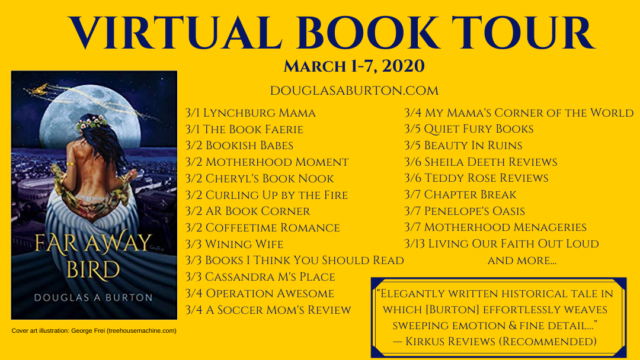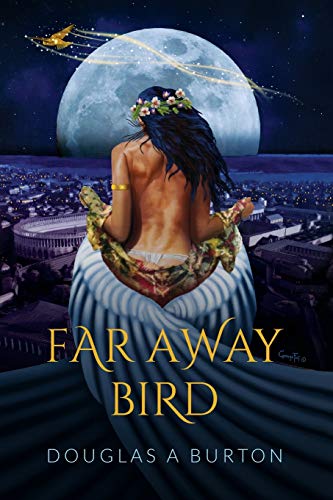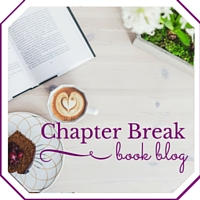The heroic and epic saga of Theodora, Byzantine Empress
The courageous girl who challenged the Roman-Byzantine aristocracy and ignited the women’s rights movement

Douglas A. Burton Author Q&A
When did you first realize you wanted to be a writer? Or what first inspired you to write?
I wrote my first real story in 4th grade. I wrote a Halloween haunted house story by hand in my Mead notebook. It was 28 pages long, so it took up a pretty decent chunk of the notebook. But everyone wanted to read it. I then started making comic book stories with panels of hand-drawn characters. I’m also a bit of an artist, though hopelessly amateur. After I read this one phenomenal comic book called, Fafhrd and the Gray Mouser, a collection of tales by author Fritz Lieber, I had a wave of desire to become a full-on writer. The bizarre details, the exotic world, the characters, I loved it all. I created a beloved and similar character called Eli Naxin, The Grey Fox I wrote so many adventures for him. So, when I started writing about Byzantium, which is an equally exotic and bizarre world in real life, I brought a fantasy writing background into it. I’ve tried to write stories that took place in Byzantium for 20 years.
Where/When do you best like to write?
I write almost exclusively in the morning. I find and then defend my writing time no matter what. If necessary, I’ll go to bed a 10 pm and wake up at 4 am. I make sure I get at least six hours of sleep each night, but I get up early and write. I never write on Saturdays because I do no work whatsoever on Saturdays. I can write anywhere. But I usually write from home in my little office or I go to a coffee house.
Do you have any interesting writing habits or superstitions?
Yes. Music. I can’t write without music. Whenever I have a scene in my head, I simply must have accompanying music. It’s the sound and spirit of the music that has to be right. I’ll comb soundtracks, classical music, world music, anything to find that music. I’ll create a playlist. When I’m in the car, I listen to that music and my imagination runs wild with almost dreamlike spontaneity and randomness. Great scenes come into my head sometimes and then I try and bottle that magic on a page. For example, in the climax of my book, Chapter 47, I listened to the finale of Swan Lake. This scene was to be the emergence moment of a true empress. I’d play the music loud and let my chaotic, creative mind auto-populate the entire scene in all its rich and vivid details. Then, I challenge my logical, orderly brain to use exact and unambiguous language to recount the scene. It’s a pretty intense process actually. But the feeling that the music evokes stays inside you long after the chapter is written.
When you are struggling to write/have writer’s block, what are some ways that help you find your creative muse again?
I listen to music. Soundtracks are usually best. That feeds my chaos brain. And then I do tons of research, which feeds my structured brain. I keep doing both until the two halves of my brain make babies lol. But this process is tried and true.
What do you think makes a good story?
Good characters who are seriously challenged and face failure at every turn. Being overmatched. Being unable to overcome a situation. These are major aspects of a good story that cause us never to forget what that character went through. And more importantly, when we see how these characters finally triumphed in the end, we learn something about overcoming adversity. To me, stories are much more than mere entertainment. They are models of the human experience that can span across time and reality. They all mean something.
What inspired your story?
I fell in love with the Byzantines back in 1993 when I read a book called Constantinople: Birth of an Empire by Harold Lamb. He painted a picture of a Roman Empire divorced from Europe, Greek-speaking, not Latin-speaking. My fascination never let go. My first attempt at my current novel was back in 2009 and had Justinian as the main character, told in the first person. But as I explored a competing storyline that focused on Theodora, she came to dominate the story in ways I could have never imagined.
How does a new story idea come to you? Is it an event that sparks the plot or a character speaking to you?
Anything can spark an idea. A boat half sunk next to a pier, a name on a tombstone, a bad movie, seeing an orchid mantis for the first time on YouTube, or a random conversation. I usually jot them down in a notebook and file them away.
Is there a message/theme in your novel that you want readers to grasp?
Well, the message emerged on its own. The strongest message of the book is about personal empowerment, which comes at a price. There are many discussions and lessons in the book about the nature of personal power and the nature of evil. I believe these themes are universal and take on a special dynamic when it relates to women. Seeing the world through Theodora’s eyes had a major impact on me, personally.
What was one of the most surprising things you learned in creating your books?
I think my biggest discovery was the cultural significance of a heroine-centric story. I grew up studying Joseph Campbell’s hero’s journey and based a ton of work on story structure and character development on it. However, I came to find many differences in the narrative arc when it came to Theodora that I decided to study female-driven stories and films. I came up with something I’m calling the ‘Heroine’s Labyrinth,’ which is a heroine-centric model for story structure that I’m damn excited about! Many women encounter a host of different challenges in our cultural stories and in many cases, model a different kind of heroic behavior. Generally speaking, heroines save the world in different ways. Whereas male-oriented heroes taught me how to leave home and prove my worth, female-oriented heroes taught me how to overcome social roles and unmask villains here in my own native culture. I’m inspired by heroic women more than ever before and plan to pursue this study long into the future. I think I’m on to something.
What was your greatest challenge in writing this book?
I was completely unprepared for the dramatic challenge to my world view and personal perspective that would come about in the writing of this book. Writing about Theodora, especially her struggles and efforts to assert herself in a male-dominated world opened my eyes. And not in a small way. To my surprise, when I opened myself up to feedback about my lead character, numerous women came forward. They gave a voice to the issues and conflicts within the novel. Real people told me real stories and provided real perspectives about real-world issues. I couldn’t believe how relevant Theodora’s problems were here in the modern day. I see things differently now. I did my very best to open myself up to perspectives and insights that were not my own. And in a big way, I met my own lead character for the first time and she taught me things about the world I didn’t know before I started writing the book.
 Far Away Bird
Far Away Bird
by Douglas A. Burton
Release Date: February 6, 2020
ISBN-13: 978-1733022101
Paperback: 394 pages
Publisher: Silent Music Press LLC
Her salacious past has left historians blushing and uncomfortable. Tales of her shamelessness have survived for centuries, and yet her accomplishments as an empress are unparalleled. Theodora goes on to influence sweeping reforms that result in some of the first-ever Western laws granting women freedom and protection. More than a millennium before the women’s rights movement, Theodora, alone, took on a world superpower and succeeded. Far Away Bird goes where history classrooms fear to tread in hopes that Theodora can finally take her seat among the greatest women in history.
Theodora seems impossible–yet her transcendence teaches us that society can’t tell us who we are deep down.
Before there was a legendary empress, there was a conflicted young woman from the lower classes.
About the Author
Douglas recently began outlining a breakthrough storytelling model that reveals a fascinating “heroine-centric” model for story structure he calls “The Heroine’s Labyrinth.” He believes the heroine is a powerful archetype that has widespread cultural significance and deserves more attention. He lives in Austin, Texas with his wife and two little boys.
Social Media:
Facebook: https://www.facebook.com/
Twitter: https://twitter.com/
LinkedIn: https://www.linkedin.com/in/
Note: Some posts may contain affiliate links. Should you choose to purchase a product, we will receive a small commission for the sale at no additional cost to you. Chapter Break is a participant in the Amazon Services LLC Associates Program, an affiliate advertising program designed to provide a means for sites to earn advertising fees by advertising and linking to Amazon.com.


